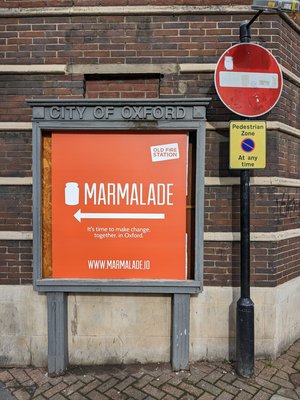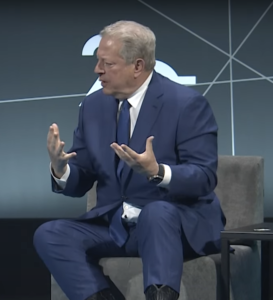A Review of the Marmalade Festival Dance Workshop run by Julia Dover on 11 April
Nicole Gilroy
‘Marmalade’ is a collaboration of individuals and organisations coming together in Oxford to make it a better place for all by focussing on power, relationships, and place with the aim of shifting power and sharing it across the city.

Dance is an art form that exists in every level of privilege and oppression, and is used in every culture to express joy, to celebrate and to rebel. It can be both elitist and subversive, even at the same time. So obviously I signed up for this workshop the day after Easter Monday, thinking it might be a breath of fresh air after an emotionally challenging Easter weekend and two relentless weeks of childcare, which can bring out subversive intent in the best of us.
Anyone who’s been to some kind of creative workshop will know how they tend to go, but notably absent from this one was the ‘ice breaker”’ or ‘getting to know you’ bit. The participants were for the most part strangers and didn’t get to speak more than the odd word to one another until the end. We didn’t know each other’s names, roles, jobs, accents, or reasons for signing up. I’ve had a similar experience in a silent retreat and being a nosy human, I find myself endlessly speculating about these other humans in my company. Who are they? Why did they sign up? Will I get to find out?
‘And those who were seen dancing were thought insane by those who could not hear the music…’ (Friedrich Nietzsche).
The first exercise was to walk around the room. First, as if one were desperately trying to get somewhere as quickly as possible. Frankly, this one was far too familiar to me and I was glad to move on.
But soon we were asked to add a random movement into our walk. Just a gesture, anything. My thoughts were immediately drawn to the tics my daughter has developed recently, seemingly meaningless, repetitive movements, serving no practical purpose.
Odd. Kind of annoying even. Here we were, moving around a room and deliberately introducing tics to our gait. Next, we added another, and another, until we each had four, effectively meaningless but deliberate and intentional movements incorporated onto our travelling around the room.
At this point, and in these numbers, coming from maybe 20 people, the movements were no longer erratic but rhythmic, and possibly even meaningful, though who could say what that meaning might be.
Next, we began to meet one another, still wordlessly, but we were to offer and/or receive a gift. The gestures and movements needed to express this gift and our gratitude and joy became part of the dance. We met one another as if we were meeting the first human we’d ever seen.
We mirrored one another’s movements, and this too became a dance. Small elements of touch entered the interactions – fingertips, hands. These interactions: facial expressions, fingertip touches and eye contact took on a profound communicative function which connected the individuals of the group still without having spoken to one another.
Eventually, to the horror of some and the excitement of others, we took our performance to the Said Business School where the Skoll World Forum of Social Innovation, featuring Al Gore as keynote speaker, was taking place.

We poured ourselves onto the concrete forecourt, performing our sequences of movements and our moments of connection and communication, much to the entertainment of the staff and visitors behind the glass frontage. Afterwards we learned that one of our number was taking part in the forum, and he disappeared inside once we’d finished looking energised and full of a sense of fun.
We had a short session of discussion after the ‘performance’ where we realised that we had in fact communicated intimately with one another, we knew the movements of one another’s bodies but not each other’s names; we knew the typical gestures and type of mirroring a particular person favoured but not their job or nationality.
Just as not so very long ago, a person talking excitedly to themselves in the street would be judged insane, and now the Bluetooth earpiece means they’re simply chatting to their boss, or partner, these meaningless movements can be perhaps interpreted more generously.
Moving – walking or perhaps dancing – down the street can be more than a means of locomotion but a deep connection with our fellow beings, whether we speak with them or know any of their standard data. What other communication are we missing by ignoring the medium and making assumptions about the value of information available from a person who doesn’t speak?
Why walk when you can dance? Why talk when you can sing? Why rush on by when you can connect? Dare I add, why minister verbally when so much can be celebrated by silence?
Postscript: Grumpy old Nietzsche in fact found the sacred through the medium of dance and claimed his only act of piety was to dance daily, saying ‘I would only believe in a god that knows how to dance.’
Read more here:
This Month’s Forty-Three Newsletter Contents
- June 2023
- Narrated Newsletter June 2023
- The Challenge of Poverty
- Artists, Correspondents, and Photographers
- Monthly Appeal June 2023
- The Christian Story
- “Why Walk When You Can Dance?”
- A Letter from Banbury and Chipping Norton Amnesty Group
- Oxford Quaker & Answer
- Happy News
- Adwoa Burnley – Yearly Meeting Epistle 2023
- The Courage to be a Quaker
- From Quaker Faith & Practice 26.50
- Meetings for Worship June 2023
Back to June 2023 Newsletter Main Page
Forty-Three Newsletter • Number 530 • June 2023
Oxford Friends Meeting
43 St Giles, Oxford OX1 3LW
Copyright 2023, Oxford Quakers
